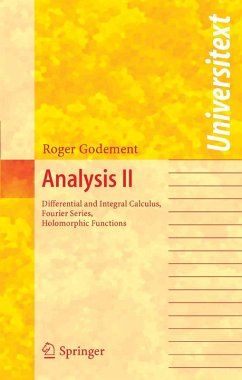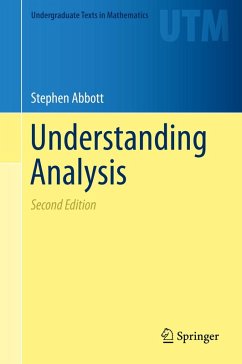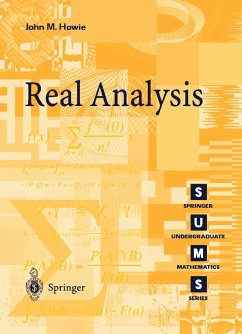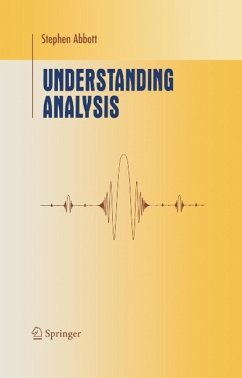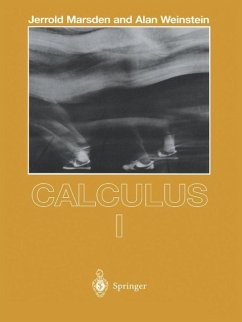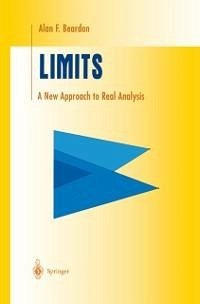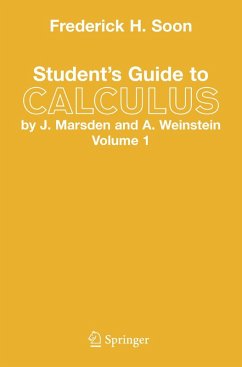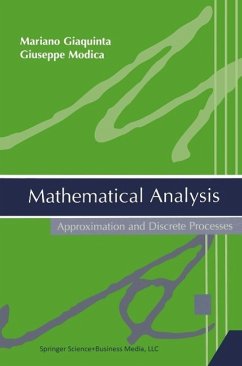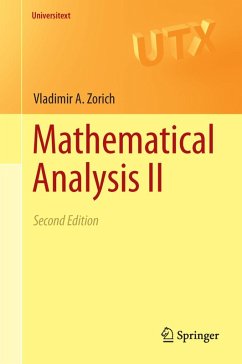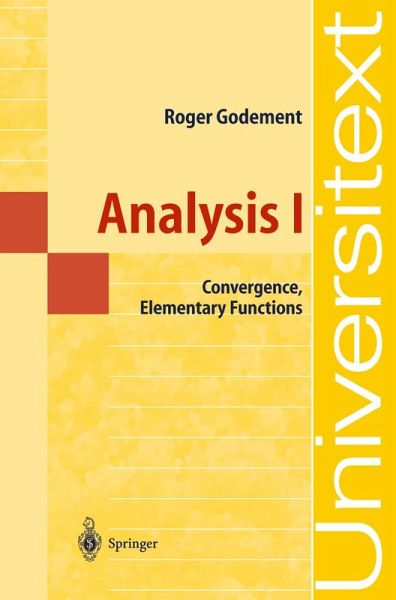
Analysis I (eBook, PDF)
Convergence, Elementary functions
Übersetzer: Spain, P.
Versandkostenfrei!
Sofort per Download lieferbar
56,95 €
inkl. MwSt.
Weitere Ausgaben:

PAYBACK Punkte
28 °P sammeln!
Functions in R and C, including the theory of Fourier series, Fourier integrals and part of that of holomorphic functions, form the focal topic of these two volumes. Based on a course given by the author to large audiences at Paris VII University for many years, the exposition proceeds somewhat nonlinearly, blending rigorous mathematics skilfully with didactical and historical considerations. It sets out to illustrate the variety of possible approaches to the main results, in order to initiate the reader to methods, the underlying reasoning, and fundamental ideas. It is suitable for both teach...
Functions in R and C, including the theory of Fourier series, Fourier integrals and part of that of holomorphic functions, form the focal topic of these two volumes. Based on a course given by the author to large audiences at Paris VII University for many years, the exposition proceeds somewhat nonlinearly, blending rigorous mathematics skilfully with didactical and historical considerations. It sets out to illustrate the variety of possible approaches to the main results, in order to initiate the reader to methods, the underlying reasoning, and fundamental ideas. It is suitable for both teaching and self-study. In his familiar, personal style, the author emphasizes ideas over calculations and, avoiding the condensed style frequently found in textbooks, explains these ideas without parsimony of words. The French edition in four volumes, published from 1998, has met with resounding success: the first two volumes are now available in English.
Dieser Download kann aus rechtlichen Gründen nur mit Rechnungsadresse in A, B, BG, CY, CZ, D, DK, EW, E, FIN, F, GR, HR, H, IRL, I, LT, L, LR, M, NL, PL, P, R, S, SLO, SK ausgeliefert werden.



